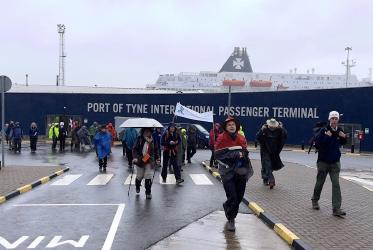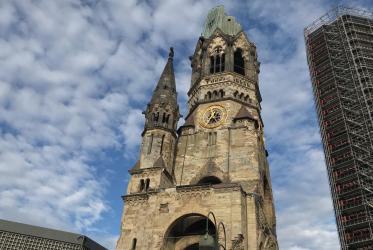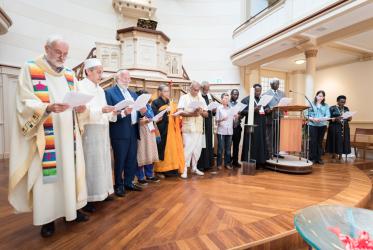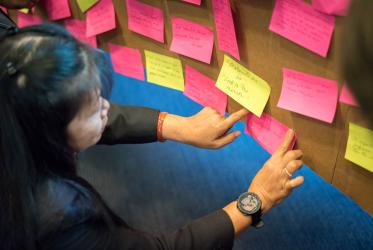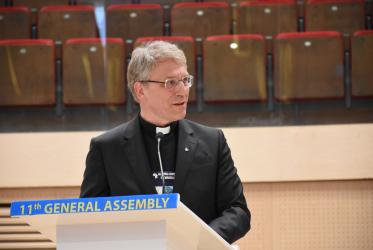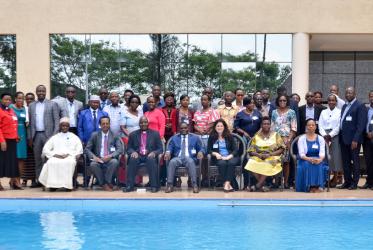Displaying 1 - 20 of 25
Young Africans are eager to grapple with challenges
09 January 2020
WCC hones training on attitudes toward HIV treatment
06 December 2018
“Love will find a way”
23 August 2018
What difference does dressing in black make?
02 August 2018
Working toward an AIDS-free generation
26 July 2018
Building bridges of faith in the HIV response
25 July 2018
Building Bridges in the global HIV response
25 July 2018
New Executive Committee members elected in Trondheim
28 June 2016
“European solidarity must be strengthened”
29 October 2015
WCC urges responsibility for and support to the refugees in Europe
04 September 2015

